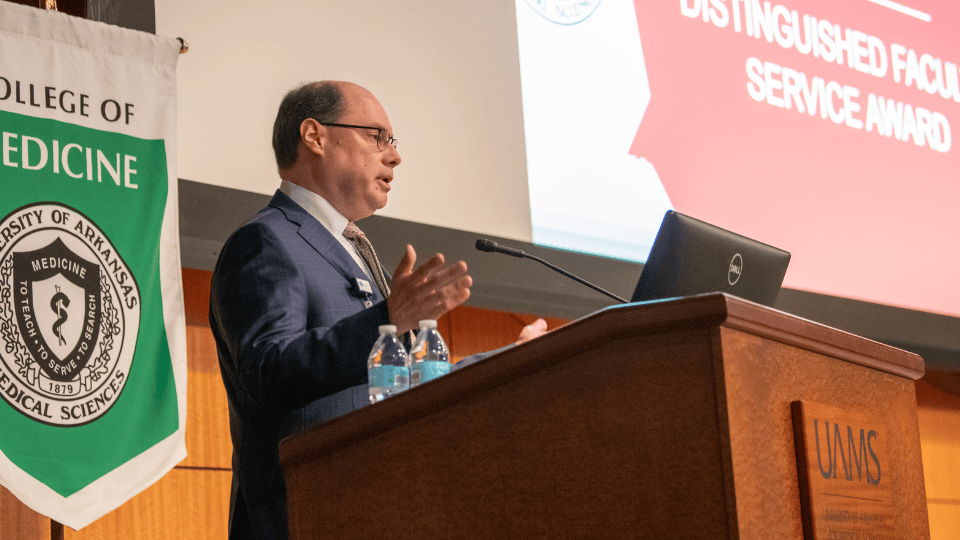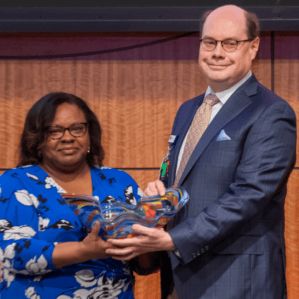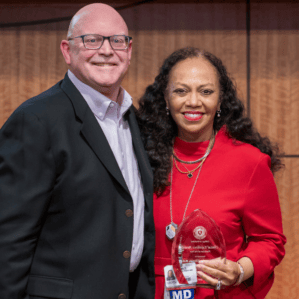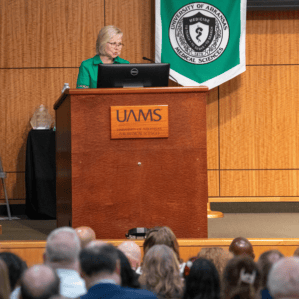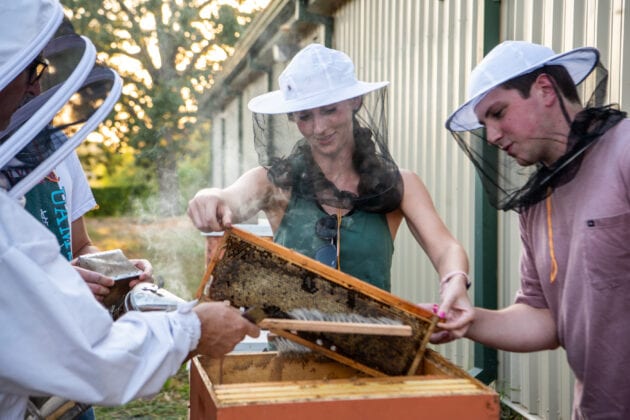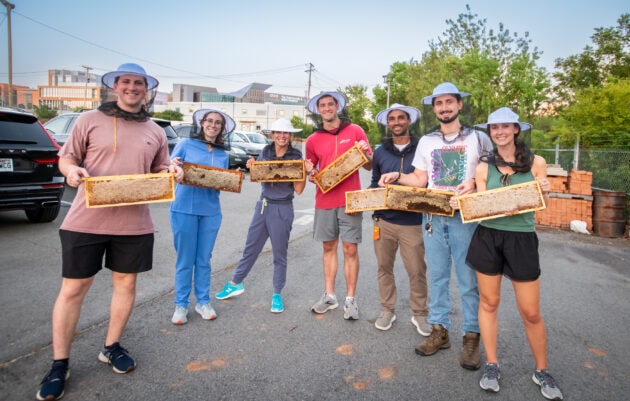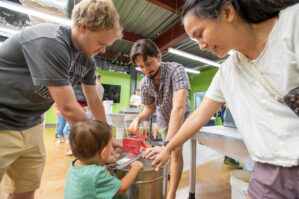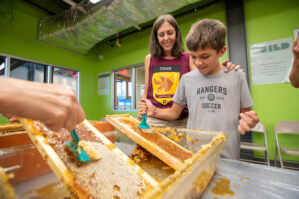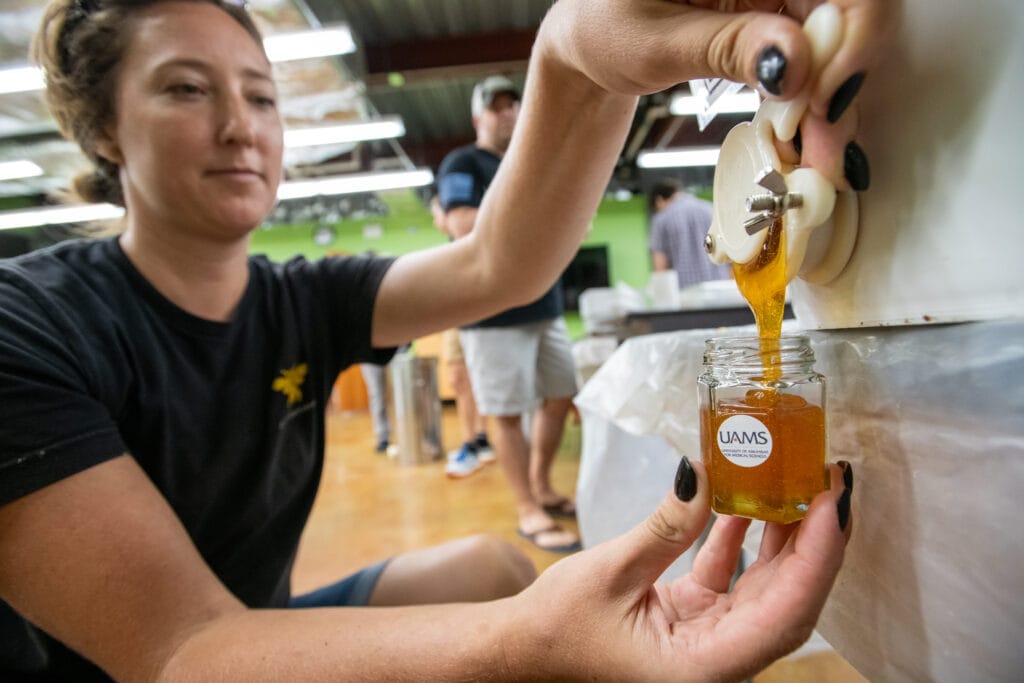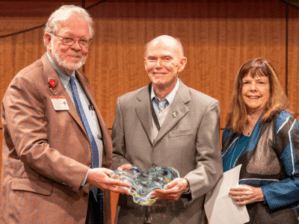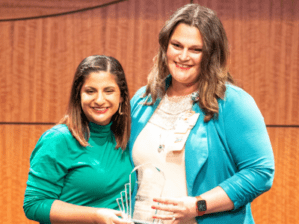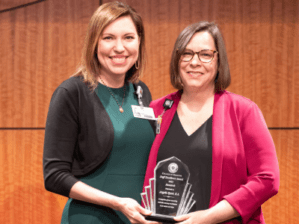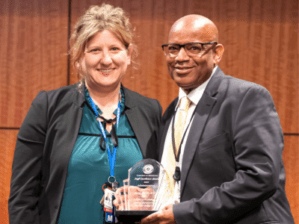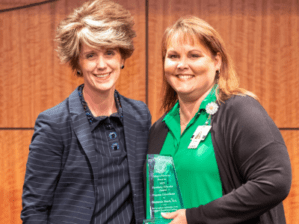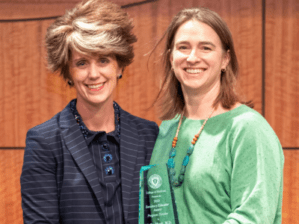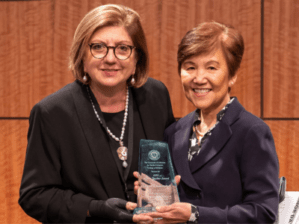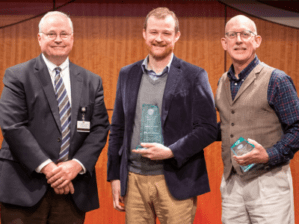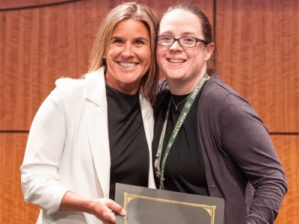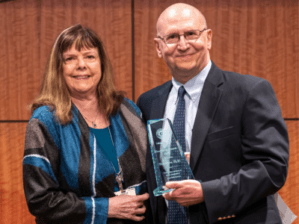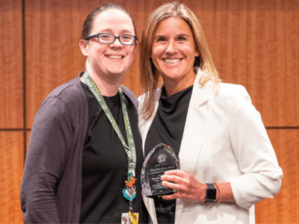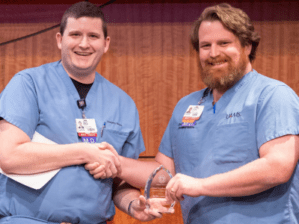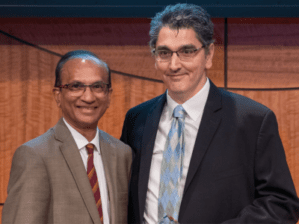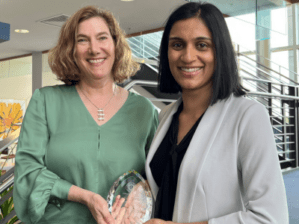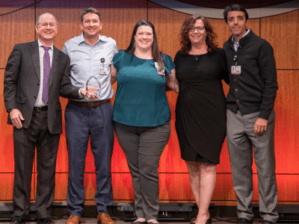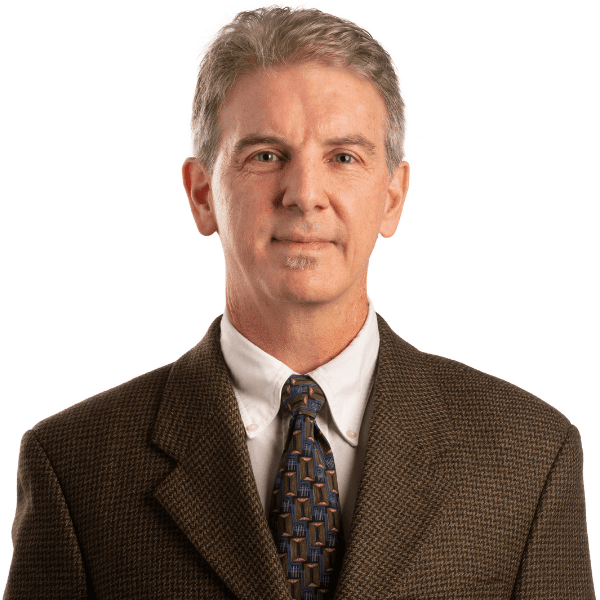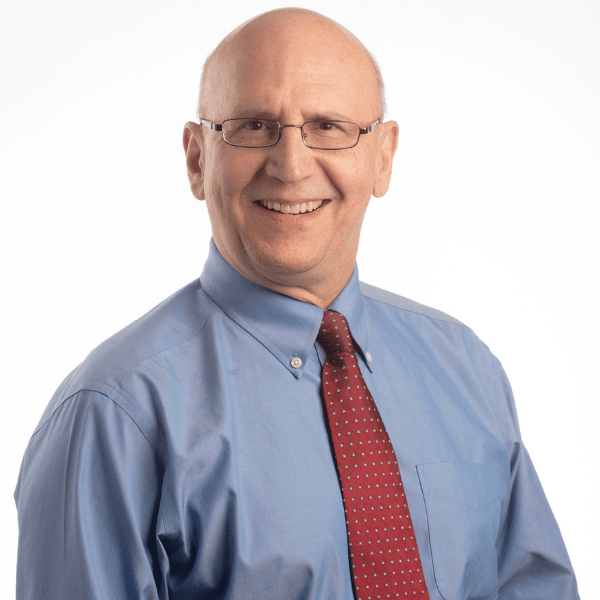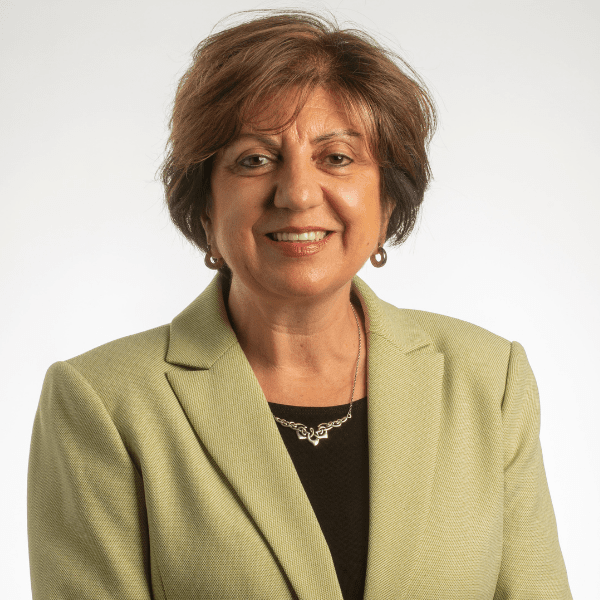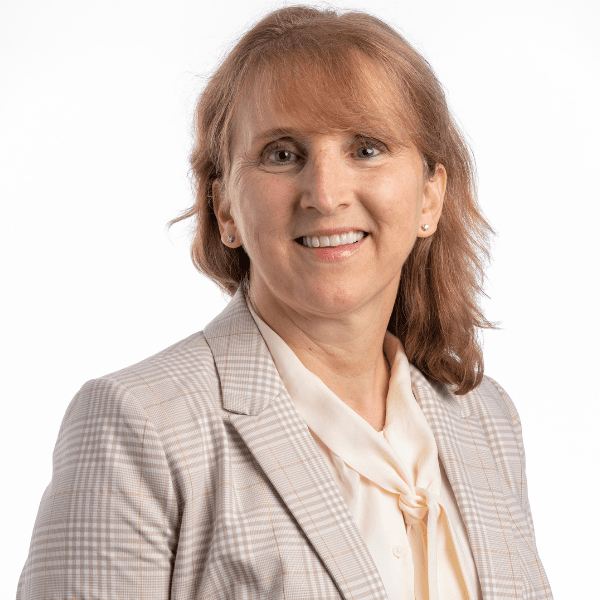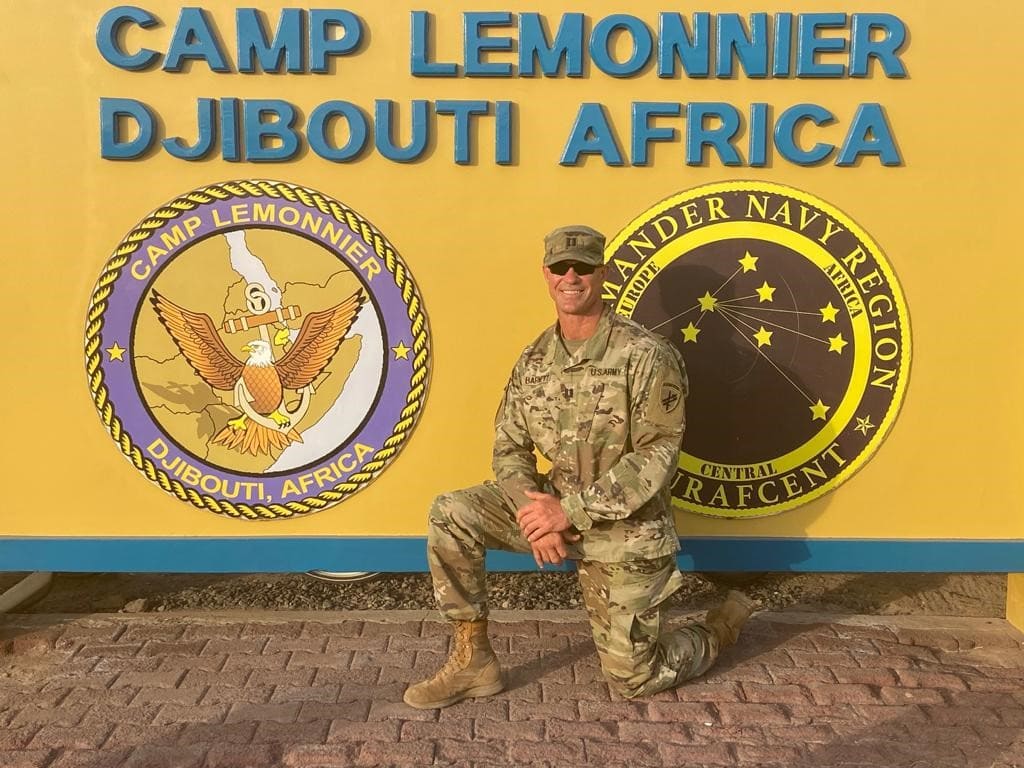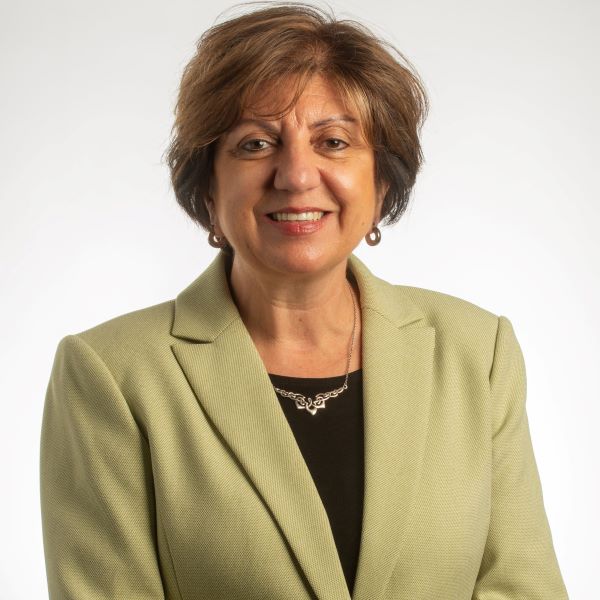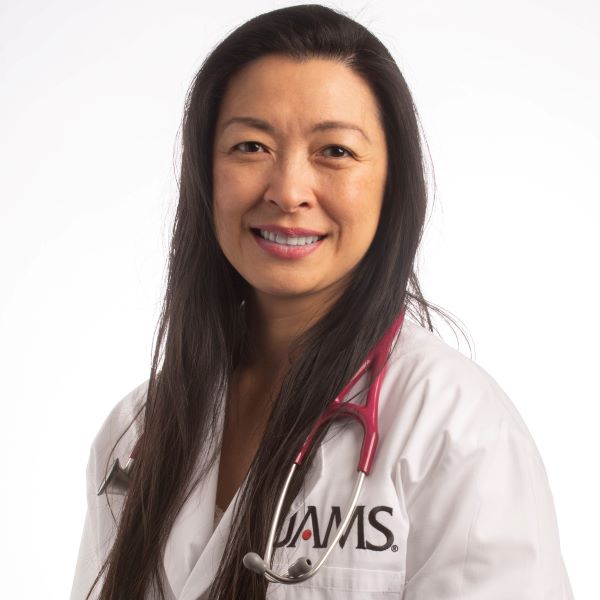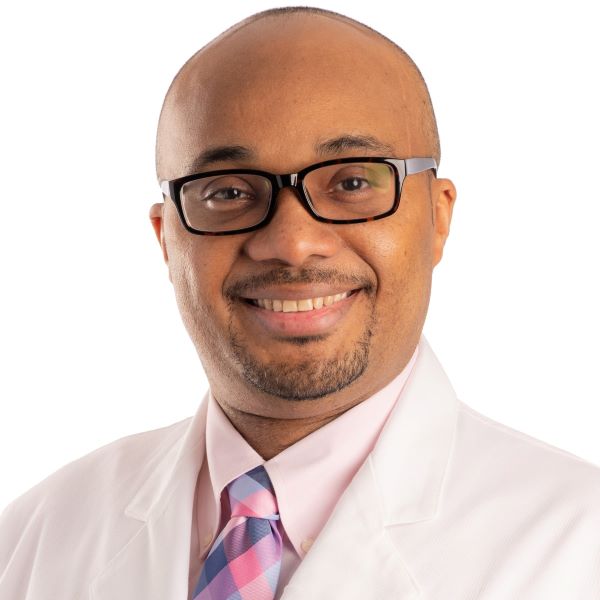Each year, students in the UAMS College of Medicine vote for the faculty members they consider to be the most outstanding educators. The honorees are recognized during the college’s Honors Convocation ceremony on the eve of UAMS Commencement.
Red Sash winners in attendance at the May 17, 2024 ceremony were entitled to wear red sashes over their regalia robes. These honorees were named as outstanding teachers by members of the senior class. Gold Sash honorees are the faculty members who received the highest number of votes.
The person voted by each of the four medical school classes as the best teacher of the year receives that class’s prestigious Golden Apple Award.
In the list of faculty honorees below, the Gold Sash and Golden Apple Honorees are noted and in bold type. The others in this list are Red Sash winners selected by the senior class. All faculty members are listed in their primary department. These exemplary faculty members teach and practice at the UAMS campuses, Arkansas Children’s, the Central Arkansas Veterans Health System, and Baptist Health. Congratulations to all!
Anesthesiology
Daniel Bingham, M.D.
Jarna Shah, M.D.
Matthew Spond, M.D.
Kyle Stoner, M.D.
Biochemistry/Molecular Biology
Alan Diekman, Ph.D. Gold Sash, Freshman (M1) Golden Apple. Dr. Diekman also was selected by seniors to deliver the Faculty Address at Honors Convocation.
Dermatology
Megan Evans, M.D.
Sara Shalin, M.D., Ph.D.
Vivian Shi, M.D.
Emergency Medicine
Lauren Evans, M.D.
Joel Mosley, M.D.
J.R. Warix, D.O.
Family/Preventive Medicine
Stephen King, M.D.
Diorella López-González, M.D.
Amber Norris, M.D.
Leslie Stone, M.D., MPH
Geriatrics
Olivia Ahrendsen, M.D.
Gohar Azhar, M.D.
Internal Medicine
Olivia Ahrendsen, M.D.
Robert Bradsher Jr., M.D.
Sheena CarlLee, M.D. Gold Sash
Matthew Deneke, M.D.
Nicholas Gowen, M.D. Gold Sash
Robert Hopkins, M.D.
Sindhu Malapati, M.D.
Nikhil Meena, M.D.
Caroline Miles, M.D.
Hakan Paydak, M.D. Gold Sash
Kristen Shealy, M.D.
Manisha Singh, M.D.
Thomas “Ples” Spradley, M.D. Gold Sash, Junior (M3) Golden Apple
Srikanth Vallurupalli, M.D.
Tobias Vancil, M.D.
Anand Venkata, M.D.
Keyur Vyas, M.D.
Taylor Washburn, M.D.
Congratulations also to Internal Medicine Resident Mason Harper, M.D., on his selection as Resident of the Year by the senior class!
Medical Humanities/Bioethics
Micah Hester, Ph.D.
Microbiology/Immunology
Martin Cannon, Ph.D.
Neurobiology/Developmental Sciences
Noor Akhter, Ph.D.
David Davies, Ph.D.
Kevin Phelan, Ph.D.
Laura Stanley, Ph.D.
Mohsin Syed, Ph.D.
Neurology
Rohit Dhall, M.D., MSPH
Neil Masangkay, M.D.
Hillary Williams, M.D.
Obstetrics/Gynecology
Katie Beal, M.D.
Joel Dickens, M.D.
Renee McGraw, M.D.
Luann Racher, M.D.
Adam Sandlin, M.D.
Lindsey Sward, M.D. Gold Sash, Senior (M4) Golden Apple. Dr. Sward also was selected by seniors to participate in donning their doctoral hoods at Honors Convocation.
Alexis White, M.D.
Otolaryngology-Head/Neck Surgery
Jeffrey Kirsch, M.D.
Gresham Richter, M.D.
Jumin Sunde, M.D.
Orthopaedic Surgery
Chelsea Mathews, M.D.
Jeffrey Stambough, M.D.
Pathology
Charles Matthew Quick, M.D.
Pediatrics
Michael Angtuaco, M.D.
Lauren Appell, M.D.
Jared Beavers, M.D.
Elijah Bolin, M.D.
Carla Brown, M.D. Dr. Brown also was selected by the class to assist in donning their doctoral hoods at Honors Convocation.
Joshua Dailey, M.D.
Rachel Ekdahl, M.D.
Jacob Filipek, M.D.
Lawrence Greiten, M.D., Ms.C.
Kristyn Jeffries, M.D.
Rebecca Latch, M.D.
Joana Mack, M.D.
Robert McGehee, Ph.D.
Steven McKee, M.D. Gold Sash
Angela Scott, M.D., Ph.D.
Megha Sharma, M.D.
Lydia Washer, M.D.
Gwenevere White, M.D.
Psychiatry
Jessica Coker, M.D.
Margaret Ege-Woolley, M.D.
Lewis Krain, M.D. Gold Sash
Samidha Tripathi, M.D.
Lindsey Wilbanks, M.D.
Radiology
Joshua Eichhorn, M.D., Ph.D.
Surgery
Benjamin Davis, M.D.
Hanna Jensen, M.D., Ph.D. Gold Sash, Sophomore (M2) Golden Apple
Mary Katherine Kimbrough, M.D.
Melissa Kost, M.D.
Jonathan Laryea, M.D.
Joseph Margolick, M.D.
Mikhail Mavros, M.D.
Mohammed Moursi, M.D.
Anna Privratsky, D.O.
Matthew Roberts, M.D.
Rachel Slotcavage, M.D.
Esther Teo, M.D.
James Yuen, M.D.

